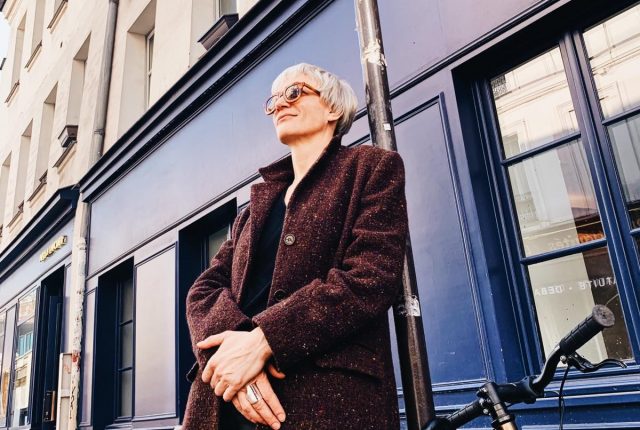
The Director’s annual letter is a serious task because it conveys a commitment to the project of the coming academic year and to a vision of a long-term future. But as I set to writing it this summer — the summer which never really came — the task is a radically altered one. How is one to present the programming, outline the goals, chart a course in the midst of the biggest upheaval — racial, social, political — and collapse — health, economic — that we have ever known? How is one to set the compass — moral and intellectual — when nothing is certain? What can be said about an annual “plan” when, from one day to the next, all we have thought and willed may get upended again? What center is there to a Center?
The daily contingency of the future is commensurate to the experience of sameness and un-change, each day and night blending into the next. This (protracted, infinite) moment — of a health crisis, of racial and social injustice, of democratic erosion from within – has made us definitively global. The entire world shares and lives in a pandemic. After #MeToo, we witness Black Lives Matter become a global movement, too. Illiberal democracies follow the same p(l)aybook no matter their location on the globe. Our crises have brought us a truly borderless world. And a limitless, undefined time of an eternal present — because we are in a time without a certain future perspective, in an open-ended temporality, adrift, decentered, dispersed.
When more than ten years ago, I advocated for CMRS to take the temporal span under its purview to the whole globe, I hardly could have imagined that our scholarly enterprise would collide with the globality that is now our daily experience and our position by default. Perhaps one way to relate to and grasp the involuntary globality of our experience is to seize this opportunity to embrace the globe while recentering on what gives us a sense of community in these rudderless times, to find the axis to the globe when the center has been burst open. The CMRS 2020- 2021 program that our faculty, associates, and graduate students have proposed, with some events rescheduled from the canceled Spring 2020 program, imagines ways both to relate to this ever-present lived globality and to connect in our community.
Globally, CMRS’s 2020-2021 program reflects changes that we enacted before the events of this past spring, but whose significance has been reinforced by them. In Fall 2020, Sarah Beckmann (Classics) will teach a LAMAR-CMRS Research Methodology Seminar on “The Late Antique World: Transitions and Transformations between Classical and Medieval (CL 250)” that will cover scholarship on enslaved persons in the late antique Christian Empire. Two important one-day workshops are planned for 2021: in Winter 2021, “1521: Making the World While Breaking the World” will connect Germany, Philippines, Mexico, and Ethiopia; and in Spring 2021, “Slavery’s Archive in the Global Middle Ages.” We will also host Susan Einbinder who will examine Jewish sources on the plague in early modern Italy and Andrea M. Achi will talk about libraries produced in Christian communities in medieval Africa for the History of the Book Lecture.
One of the events scheduled for next year, on medieval studies and Indian classical dance in the medieval period, a conversation between Anurima Banerji (World Arts and Cultures/Dance, UCLA) and Seeta Chaganti (English, UC Davis) has been postponed, as a way to draw our attention to the systemic connection between economic and racial injustice. Before any of the global events, we witnessed the UC-wide movement for COLA for graduate students. This major movement has repercussions for our intellectual community as the UC speaker boycott continues until demands are fully met and all students are reinstated and disciplinary charges dropped. We witness how those who are disadvantaged are disadvantaged yet again in visibility and place for their scholarship, because they are taking action.
I have made it a priority for the Center, for the coming year of our borderless, virtual existence, to provide “safe” spaces for our community — and for the new members joining us as UCLA’s new hires and incoming graduate students. Please come meet them at the CMRS Open House on October 15. Our research, but also our thriving community connections, have been made so tenuous and frail that CMRS-specific events are one way of caring for ourselves and keeping us connected and recentered. We will be offering a twice-monthly Works-in-Progress Happy Hour throughout Fall and Winter, as well as the New Book Salon featuring latest publications of faculty.
I also wish to shore up the support for those who are our future: CMRS will be offering this year an additional CMRS Dissertation Research Fellowship, as well as a number of Supplemental Recruitment Fellowships, and other smaller grants.
As we seek to steady the needle on the compass, to resituate our center, CMRS will continue to pursue systemic changes and grow into the 21st century looking forward. Because we, scholars of the past, know this: that the open-endedness of time is filled with potential even when changes take a long time, too often beyond one or more generations. We partake in the joy of the becoming of peoples, events, and objects that we study. I hope you will join us at the Center as we seek our center together. Whether it is the Center’s programs, intellectual community, or systemic change, we cannot realize the task alone.
In solidarity,
Zrinka Stahuljak, CMRS Director

